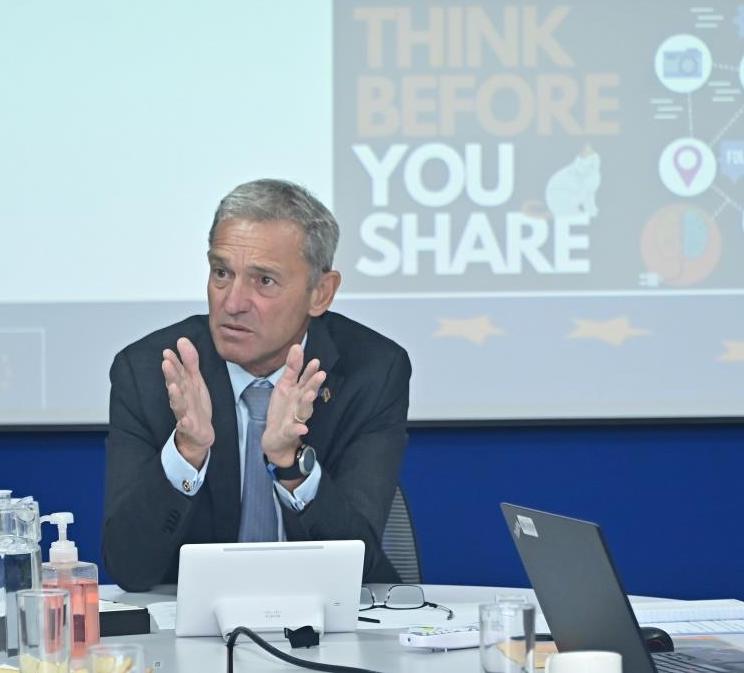
The theme “Beyond Disinformation” was the focus of a round table discussion held, yesterday, at the office of the Delegation of the European Union (EU) in Port Louis, in the presence of the Ambassador of the EU to the Republic of Mauritius, Mr Vincent Degert. Representatives from the media and youth forum as well as stakeholders from relevant bodies were present.
An initiative of the EU, this round table discussion aimed to address Foreign Information Manipulation and Interference (FIMI) threats including disinformation as well as promote cyber-resilience and cybersecurity in partner countries.
A team of two experts from the European External Action Service and the Cybersecurity for Development Programme are actually in Mauritius to facilitate training on disinformation. They are: Policy Officer at the East StratCom Task Force, Mr Siim Kumpas; and Indian Ocean Region Coordinator for the Cyber4Dev programme, Mr Hannes Krause.
Earlier this week, a two-day training on “Understanding and building resilience against disinformation in a democratic society” was conducted by the two experts.
Addressing participants at the round table discussion, Ambassador Degert dwelt on the challenge of disinformation in democratic societies. He elaborated on EU’s initiatives to tackle disinformationincluding the European External Action Service which has created a specific unit – the Strategic Communication, Task Forces and Information Analysis Division – to addressing FIMI.
Countering disinformation, he pointed out, would require structural changes to the information ecosystem with rules to better govern the decisions and behaviour of information platforms whilst safeguarding the values and freedom of democratic societies. “Disinformation is a whole-of-society problem, so the response has to be based on a whole-of-society approach”, added Mr Degert.
The presentation of Mr Kumpas and Mr Krausse focused on the conceptual introduction to the current information environment and information disorder and building resilience against disinformation using a whole-of-society approach by using the case of Estonia. The role of social media platforms and digital service providers in information disorder and countering disinformation was also highlighted during the presentation.
Disinformation and misinformation
Disinformation is false or misleading content that is spread with an intention to deceive people and may cause public harm.
Misinformation is false or misleading content shared without harmful intent though the effects can be still harmful. With the rapid digitalisation of societies, information manipulation including disinformation is becoming a real challenge to democratic societies.